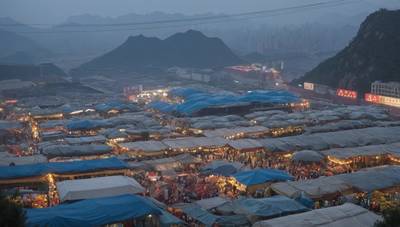The markets bet Beijing will take action against China's overcapacity
This month, commodity prices have risen from steel to polysilicon as Chinese investors bet that Beijing will finally address overcapacity in the second largest economy of the world.
The prices of nine industrial commodities, including coal, steel and polysilicon (a building block used in solar panels), alumina, and lithium carbonate, have risen by 10 to 68% over the past month, while the share prices for steelmakers, solar panel makers, and clean energy companies outpaced those for CSI 300 Index.
Beijing announced the moves on July 1, citing "disorderly competition" or overcapacity as a problem that is causing deflation in China and trade barriers overseas.
Since then, the state media have amplified this message by warnings against "involution", a popular reference to competition that is so fierce, it can be self-destructive.
Tai Hui is Asia Pacific Chief Market Strategist at JPMorgan Asset Management.
Steel and coal, as well as newer industries like solar panels and electric cars are struggling with falling prices and overcapacity. This has previously been the cause of many warnings without much action.
Some of the reactions this month from local government, regulators, and ministries suggest that Beijing is receiving its signal.
The industry ministry has pledged to stop price wars within the solar sector two days after the top-level meeting of July 1. China's photovoltaic index has risen by about 11% in the last month.
Prices of polysilicon have risen 68% since local media reported the two largest producers were planning to consolidate their sector by buying up smaller competitors.
Speculators bet on the possibility of more mine closures after a lithium mining company in northwest China was temporarily closed for non-compliant operations.
The National Energy Administration conducted inspections of mines in order to detect excess production.
Beijing has, of course, pushed for supply-side reforms in the past, and most recently, about a decade back, to reduce production in the industries of cement, glass, steel, and coal.
The task of absorbing lost jobs is now more difficult due to the higher level of private ownership of many industries, as well as the misaligned local and national incentives.
Uncertainty surrounds the extent to which authorities will go in reducing production, and what other sectors they might target.
Laura Wang, Morgan Stanley's Chief China Equity Strategist in Hong Kong, says that China's leaders are sending a positive message about their commitment to addressing overcapacity. However, progress will be slower and it may take up to a year to see an improvement in profits.
Wang stated that "we are conservative about the actual capacity reduction you can expect to see in the next three to five months."
(source: Reuters)


